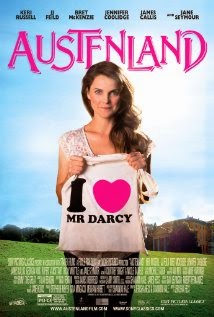So, I have never read Pride and Prejudice before. I was actually actively avoiding reading it because it has that same aura that The Great Gatsby has. That "stupid wealthy white people doing things that are pointless" aura. I get the point of Great Gatsby and Mrs. Dalloway, they're writing a narrative about how crap these people are and their actions. But my issue is that people eat this universe up. There are Gatsby parties where people dress up and are useless. USELESS!
Okay, so anyway, I wasn't stoked to start this book. And then I started it. And I still hated it.
Hate is a strong word but I'm gonna use it anyway. I really hated these people (expect Mr. Bennet. I will get Mr. Bennet tattooed on my ass I love him so much) and what they didn't do and how they are nothing but useless lumps of flesh. I sat in the English department and told anyone who passed by that I was in pain.
Reasons why I hated P&P in the beginning:
- Throwing shade
- Obsession with marriage
- Rude behavior
- Regency era stuff that I don't understand and then just got upset about.
- The class system makes me want to spork out my eyes
So, there I am, inspiring English professors on making a class based around useless white people when I decided to ask. Why? Why do people like this book? (Please answer for yourself if you like this book, I want to know!)
Dr. Sandona's answer is that he really likes the way that it's written. The language is really appealing and he appreciates how Austen created this world for readers to escape to during the Napoleonic Wars (Personally, this world sounds like a special ring of hell).
Dr. Mitchell-Buck was all about the narrator. Having a snarky narrator who tells the story but gets punished/chastised for it is refreshing and rewarding.
I didn't officially ask Dr. Orloff but she digs Jane and hates Mr. Collins and Mrs. Bennet.
These are good answers. I appreciate them and they have helped me get through the book. Once I was on a roll I kept myself going. With the aid of Mr. Bennet and a pen I marked my way through the book. What super helped me were The Lizzie Bennet Diaries.
I fell in love with the characters, I fell in love with the way the story was crafted, I fell in love with the story changes, and totally fell in love with the LOVE! I was so friggin' stoked for all the little romances and it made me turn to the book with new happiness and excitement.
Then I got to thinking. No one put romance at the top of their list as to why they liked this book. Before reading this book I had seen that Keira Knightley movie so i was expecting some awesome love action in the rain and stuff.
Look at that! Look at that deceleration of love and stuff! That's what I was expecting from the book. Nope. It was not nearly as romantic as I wanted it to be. My romance boner was gone.
They take a walk in the garden, go over how they had once perceived each other and how they have not changed, and then they part ways APPARENTLY ENGAGED. WHAT? I SO CLEARLY DON'T UNDERSTAND THIS TIME PERIOD. HE DIDN'T ASK HER TO MARRY HIM! WHAT IS GOING ON!
How did this happen? Someone with a history boner needs to tell me when it was unacceptable to have the spicy-sauce relationships that Shakespeare wrote and replace it with this passive romance. It was such a let down for me that the ending is actually ruined. THEY DON'T EVEN KISS....WHAT?! THAT'S NOT EVEN WHY I'M UPSET. I mean, look at this chemistry!
THAT IS A CUTE SPICY MEATBALL! I was expecting this from the book, and it let me down.
Don't get me wrong, I am glad that I read the book. I can check it off my list and be in the in crowd of people that 'get' Pride and Prejudice (or fake it at least). I love how Austen does dialogue, Mr. Bennet is my homie, and the book totally wrapped me up in it's dramatics. I was laughing and faux-gasping as I read it which I haven't done in a good long while. I liked it but I probably wouldn't read it again too soon. Like, if I ever have a kid and they have to read it for class I might pick it up again just to keep the neurons firing.

As far as the feminism in this book goes, I feel like its something that I will need the class to help me understand better. I see little snippets here and there that might be considered feminist but I can't get past that the entire society these people live in revolves around marriage. No matter what personality the men and women may have its all about how they're going to attached themselves to each other. I'm not seeing a who bunch of autonomy here. I mean, I am. The fact that Elizabeth can say no to Mr. Collins and Darcy is pretty impressive and autonomous. I dunno. THIS STUFF IS HARD!! Alright, I should go to sleep now, the cold medicine is hitting me now.























